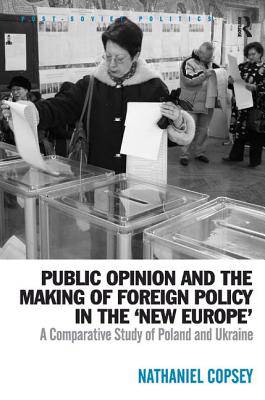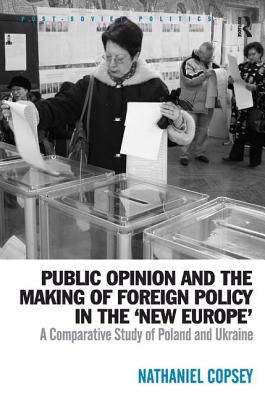
- Afhalen na 1 uur in een winkel met voorraad
- Gratis thuislevering in België vanaf € 30
- Ruim aanbod met 7 miljoen producten
- Afhalen na 1 uur in een winkel met voorraad
- Gratis thuislevering in België vanaf € 30
- Ruim aanbod met 7 miljoen producten
Zoeken
Public Opinion and the Making of Foreign Policy in the 'New Europe'
A Comparative Study of Poland and Ukraine
Nathaniel Copsey
€ 175,95
+ 351 punten
Omschrijving
By drawing a new boundary between the EU and its eastern neighbours, the European Union has since 1989 created a frontier that has been popularly described in the frontier states as the new 'Berlin Wall'. This book is the first comparative study of the impact of public opinion on the making of foreign policy in two Eastern European states on either side of the divide: Poland and Ukraine. Focusing on the vocal, informed segment of public opinion and drawing on results of both opinion polls and a series of innovative focus groups gathered since the Orange Revolution, Nathaniel Copsey unravels the mystery of how this crucial segment of the public impacts on foreign policy makers in both states. He also takes a closer look at the business community and the importance of economic factors in forming public opinion. The book presents a fresh approach to our understanding of how the public's view of the past influences contemporary politics.
Specificaties
Betrokkenen
- Auteur(s):
- Uitgeverij:
Inhoud
- Aantal bladzijden:
- 178
- Taal:
- Engels
- Reeks:
Eigenschappen
- Productcode (EAN):
- 9780754678984
- Verschijningsdatum:
- 28/12/2009
- Uitvoering:
- Hardcover
- Formaat:
- Genaaid
- Afmetingen:
- 156 mm x 234 mm
- Gewicht:
- 430 g

Alleen bij Standaard Boekhandel
+ 351 punten op je klantenkaart van Standaard Boekhandel
Beoordelingen
We publiceren alleen reviews die voldoen aan de voorwaarden voor reviews. Bekijk onze voorwaarden voor reviews.











